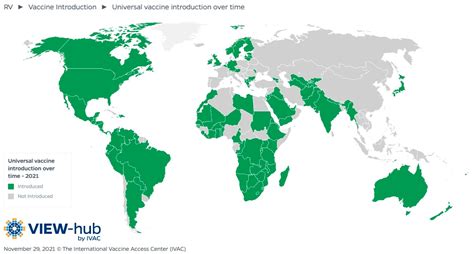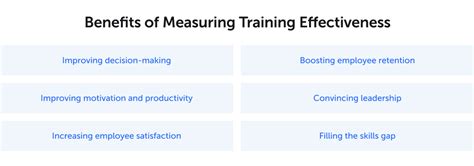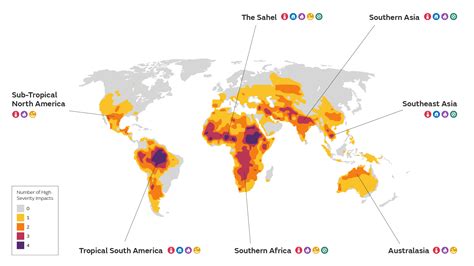Intro
Discover 5 key facts about Rotateq vaccine, including its effectiveness, side effects, and benefits in preventing rotavirus infections, gastrointestinal issues, and infant hospitalizations.
The Rotateq vaccine is a crucial component in the prevention of rotavirus infections, which can lead to severe gastrointestinal symptoms in infants and young children. Understanding the Rotateq vaccine is essential for parents, caregivers, and healthcare professionals to make informed decisions about vaccination. Here are key points to consider when exploring the Rotateq vaccine:
Rotavirus infections are a common cause of gastroenteritis, leading to symptoms such as diarrhea, vomiting, and dehydration. The introduction of rotavirus vaccines, including Rotateq, has significantly reduced the incidence of severe rotavirus infections, hospitalizations, and deaths worldwide. The vaccine's impact on public health is substantial, making it a vital tool in pediatric care.
The development and implementation of the Rotateq vaccine are based on extensive research and clinical trials that have demonstrated its safety and efficacy. The vaccine works by introducing a mild, live form of the rotavirus to the body, which stimulates the immune system to produce antibodies against the virus. This immunity protects against future infections, reducing the risk of severe disease.
As with any vaccine, it's essential to understand how the Rotateq vaccine works, its benefits, potential side effects, and the recommended vaccination schedule. Parents and caregivers should consult with healthcare professionals to address any concerns or questions they may have about the vaccine. By doing so, they can make informed decisions that contribute to the health and well-being of their children.
Introduction to Rotateq Vaccine

The Rotateq vaccine is administered orally, typically in a series of doses, to provide comprehensive protection against rotavirus infections. It is crucial to follow the recommended vaccination schedule to ensure optimal protection. The vaccine has undergone rigorous testing to ensure its safety and efficacy, and it has been approved by regulatory authorities worldwide.
Benefits of the Rotateq Vaccine
The benefits of the Rotateq vaccine are numerous, including the prevention of severe rotavirus infections, reduction in hospitalizations due to gastroenteritis, and protection against rotavirus-related deaths. Additionally, the vaccine contributes to herd immunity, reducing the spread of rotavirus in communities.How the Rotateq Vaccine Works

The Rotateq vaccine contains five live, attenuated rotavirus strains, which are designed to mimic the natural infection without causing the disease itself. When administered, these strains stimulate the immune system to produce antibodies that can recognize and fight rotavirus infections. This immune response provides long-term protection against severe rotavirus gastroenteritis.
Administration and Schedule
The Rotateq vaccine is typically administered in three doses, given at ages 2 months, 4 months, and 6 months. It is essential to adhere to this schedule to ensure the vaccine's effectiveness. The vaccine should be given orally, and it is crucial to follow the healthcare provider's instructions regarding the administration of the vaccine.Benefits and Effectiveness

The Rotateq vaccine has been shown to be highly effective in preventing severe rotavirus infections. Clinical trials and post-marketing surveillance have demonstrated a significant reduction in rotavirus-related hospitalizations and emergency department visits. The vaccine's effectiveness extends beyond individual protection, contributing to a decrease in rotavirus circulation within communities.
Common Misconceptions
Despite its proven benefits, there are common misconceptions about the Rotateq vaccine. One of the most prevalent myths is that the vaccine can cause the very disease it is designed to prevent. However, the live, attenuated strains in the vaccine are weakened and cannot cause severe rotavirus infections in healthy individuals. Another misconception is that the vaccine is not necessary if good hygiene practices are followed. While hygiene is important, it is not a substitute for vaccination, as rotavirus can be spread through contact with contaminated surfaces and objects, not just through direct contact with an infected person.Potential Side Effects

Like any vaccine, the Rotateq vaccine can cause side effects, although these are generally mild and temporary. Common side effects include mild diarrhea, vomiting, and fever. In rare cases, more serious side effects can occur, such as intussusception, a condition where a part of the intestine slides into an adjacent part. However, the risk of such serious side effects is extremely low, and the benefits of the vaccine far outweigh the risks.
Monitoring and Safety
The safety of the Rotateq vaccine is continuously monitored by health authorities and the manufacturer. Post-marketing surveillance and adverse event reporting systems are in place to quickly identify and investigate any potential safety concerns. This ongoing monitoring ensures that the vaccine remains safe for use in infants and young children.Recommendations and Guidelines

Health organizations worldwide recommend the Rotateq vaccine as part of the routine vaccination schedule for infants. The Centers for Disease Control and Prevention (CDC), the World Health Organization (WHO), and other global health authorities endorse the vaccine for its safety and efficacy in preventing rotavirus infections.
Vaccination Schedule
The recommended vaccination schedule for the Rotateq vaccine typically involves three doses, given at 2, 4, and 6 months of age. The first dose should be administered before a child reaches 15 weeks of age, and all doses should be completed before the child turns 8 months old. It is crucial to follow this schedule to ensure the vaccine's effectiveness.Global Impact

The introduction of the Rotateq vaccine has had a profound impact on global health, particularly in regions with limited access to healthcare. By reducing the incidence of severe rotavirus infections, the vaccine has contributed to a decrease in childhood mortality rates and a reduction in the economic burden associated with treating rotavirus-related illnesses.
Future Directions
As vaccine technology continues to evolve, future directions for the Rotateq vaccine may include the development of new formulations or the exploration of its use in older children and adults. Additionally, efforts to improve vaccine accessibility and affordability in low-income countries will be critical in further reducing the global burden of rotavirus infections.Conclusion and Next Steps

In conclusion, the Rotateq vaccine is a vital tool in the prevention of severe rotavirus infections. Its safety, efficacy, and impact on public health make it a recommended vaccine for infants and young children worldwide. As we move forward, it is essential to continue monitoring the vaccine's safety, improving accessibility, and addressing any misconceptions or concerns that may arise.
We invite readers to share their thoughts and experiences with the Rotateq vaccine in the comments below. If you found this article informative, please consider sharing it with others who may benefit from this information. Together, we can work towards a future where severe rotavirus infections are a rarity, and all children have access to the vaccines they need to thrive.
What is the Rotateq vaccine used for?
+The Rotateq vaccine is used to protect against rotavirus infections, which can cause severe gastrointestinal symptoms in infants and young children.
How is the Rotateq vaccine administered?
+The Rotateq vaccine is administered orally, in a series of three doses, typically given at 2, 4, and 6 months of age.
What are the common side effects of the Rotateq vaccine?
+Common side effects of the Rotateq vaccine include mild diarrhea, vomiting, and fever. Serious side effects are rare but can include intussusception, a condition where a part of the intestine slides into an adjacent part.
